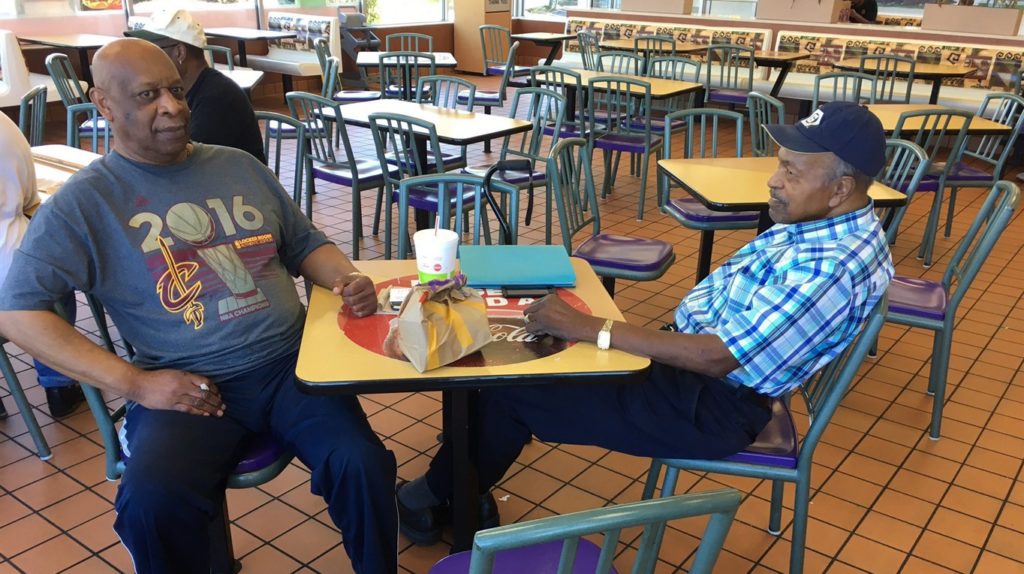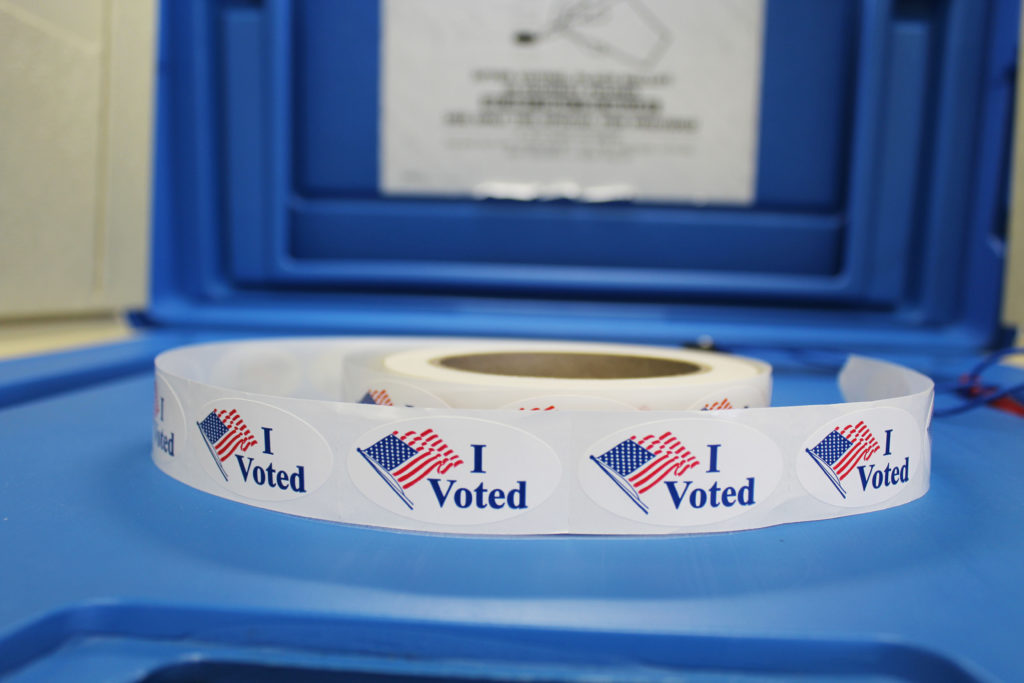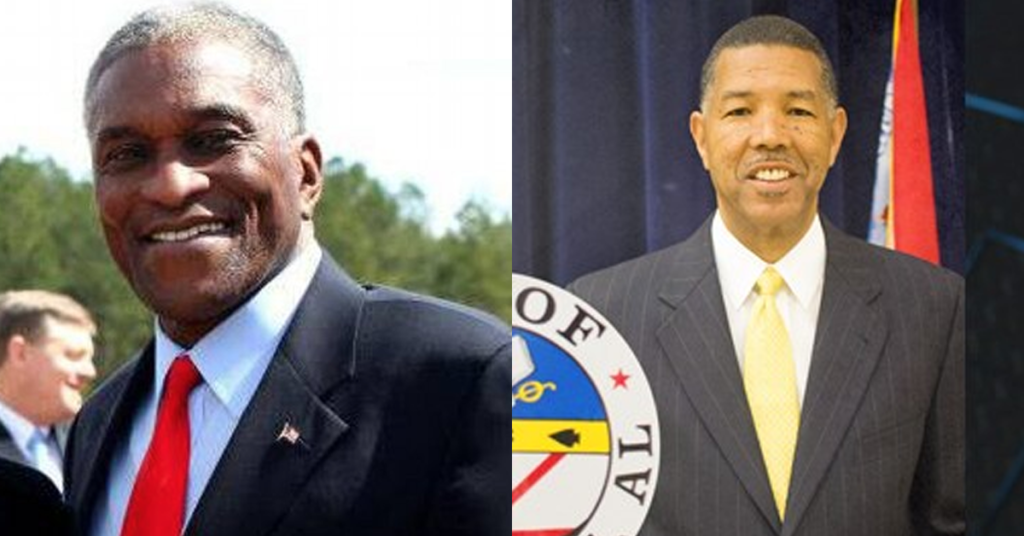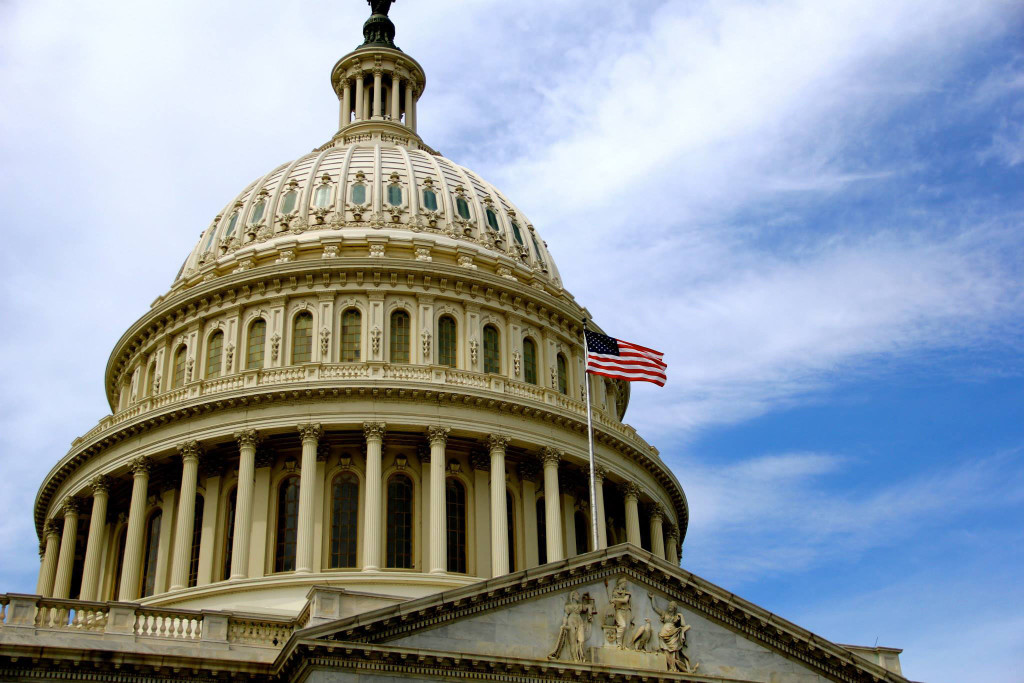As Donald Trump tries minority outreach, many blacks unconvinced

Black Republicans cheer Donald Trump for a newfound outreach to African-Americans, but say the GOP presidential nominee must take his message beyond arenas filled with white supporters and venture into the inner cities. Many rank-and-file black voters, meanwhile, dismiss the overtures as another racially charged pitch from a campaign aimed exclusively at whites, from Trump’s emphasis on “law and order” to his withering critiques of President Barack Obama, the nation’s first black chief executive. It was Trump in 2011 who fiercely challenged Obama’s U.S. birth. “Any minority who would vote for him is crazy, ought to have their head examined,” said Ike Jenkins, an 81-year-old retired business owner in the predominantly black suburb of East Cleveland. Foluke Bennett, a 43-year-old from Philadelphia, went further, labeling the GOP standard-bearer’s remarks as “racist,” pointing, among other things, to his referencing African-Americans as “the blacks.” Trump is scheduled to appear Wednesday in Jackson, Mississippi, an 80 percent African-American city and capital of the state with the nation’s highest proportion of black residents. It is unclear whether he will address black voters directly; so far, his appeal to them has been delivered before white audiences in mostly white cities. Mississippi is overwhelmingly Republican because of whites’ loyalties, as opposed to battlegrounds such as Ohio, Pennsylvania and Florida, states Obama won twice and where the largest cities offer at least a theoretical chance for Trump to pursue marginal shifts among significant black populations. Trump has previously rejected high-profile speaking slots at the NAACP’s annual gathering, along with events sponsored by the Urban League and the National Association of Black Journalists. “He’s got to take his arguments to the streets,” said Brandon Berg, a black pastor who drove Monday from Youngstown, Ohio, to hear Trump at the University of Akron. Berg said he’s an outlier: an undecided black Republican. For most African-Americans, Berg said, Trump must “meet them where they are.” Trump has scheduled an event Thursday billed as a roundtable with black and Latino leaders invited to his New York offices, and his aides say he is considering more rallies in heavily minority cities in swing states. The Washington Post first reported those plans, specifically mentioning charter schools, small businesses and churches in black and Latino communities. It’s a well-known electoral conundrum for Trump and Republicans: The United States population grows less white with each election cycle, so to defeat Democrat Hillary Clinton, the New York billionaire must attract more non-white voters or run up an advantage with white voters to a level no candidate has reached since Ronald Reagan’s 1984 landslide. Obama won 93 percent of black voters in 2012 and 95 percent in 2008, according to exit polls. This year, polls suggest Trump could fare even worse than the Republicans who lost to Obama. Trump has confronted his steep path in the last week, asking minorities, “Give Trump a chance!” In Wisconsin, he declared to minorities: “You live in poverty, your schools are no good, you have no jobs, 58 percent of your youth is unemployed? What the hell do you have to lose?” He argues illegal immigration disproportionately affects economic opportunities of blacks and Hispanics. In Ohio, he insisted without evidence that foreign “war zones” are “safer than living in some of our inner cities.” He pledged a Trump administration would “get rid of the crime,” allowing minorities to “walk down the street without getting shot.” Calvin Tucker, the lone black GOP convention delegate from Pennsylvania, says Trump’s arguments resonate with him. “We need a change agent,” said Tucker, 64, of Philadelphia. “He’s breaking down his overall economic platform and relating it to African-Americans,” Tucker added, extolling the GOP’s emphasis on entrepreneurial pursuits. Certainly, each Trump pronouncement drew roaring approval from his rally audiences. Many black voters, however, hear the appeal differently. As he sold Cleveland Cavaliers NBA championship swag, street vendor Steve T, 47, said the “disrespectful” comments represent “the real Trump.” “Not all of us live in poverty, crime,” he said. “You can’t get votes from people you don’t even understand.” In Philadelphia, Bennett said, “It’s crazy to think that he would have the audacity to ask us what we have to lose. If anything, his comments just made the line even more clear as to why black people won’t vote for him.” In East Cleveland, Jenkins and several other retirees gathered in a neighborhood restaurant echo many of Trump’s arguments. James Smith, a 79-year-old former butcher, points out the window and laments “a community that’s old and poor.” Jenkins says “handouts keep people in slavery.” Randall Darnell blasts an economy that traps laborers, black and white, in “legalized slavery.” But every one plans to vote for Clinton, and nearly all said they see Trump’s latest arguments aimed more at whites. “He’s talking about black people” when he mentions violence in cities, Smith said, “not to black people.” Republished with permission of The Associated Press.
Selma mayoral race heads to a runoff

Selma voters winnowed the crowded field of five mayoral candidates down to two at the ballot box Tuesday. State Rep. the Rev. Darrio Melton and former Selma mayor Rev. James Perkins, Jr. will face off Oct. 4 in a runoff election. While the official results are not in, the unofficial results have Melton with 35 percent of the vote and Perkins with 30 percent. Incumbent Mayor George Evans, who is nearing the end of his second term, will definitively finish in third place with 18 percent of the vote, writing the end of his mayoral career. Eight years ago, Evans defeated Perkins for the position.
Ronda Walker: Homework — no child left outside

The lazy days of summer have ended and school is back in session. K-12 children across the country are strapping on backpacks and heading to the classroom for seven to eight hours each day. During their time at school they are learning the academic fundamentals of reading, math, and science and, if they are lucky, they get a few minutes of physical education and the arts. Their school day is jam-packed with learning, teachers encouraging students to stretch their knowledge base, and expand their understanding of the known and unknown. Children wake up early for school and arrive home mid- to late afternoon tired and ready to unwind. But they cannot rest or unwind because they are sent home with up to several hours of homework each evening. Apparently seven hours of school is not sufficient for instruction — but it should be. Excessive homework is a waste of everyone’s time. And that is not just my opinion, studies have shown there is no conclusive evidence homework increases student achievement. A Duke University professor recently concluded that while homework can have a positive effect on student achievement for older students, too much homework for any age is counterproductive. And there is no correlation between homework and student achievement in elementary grades. If your elementary child is required to do more than about 30 minutes of homework each evening, it is too much. My anti-homework stance is nothing new. Since the inception of formalized education in America, the issue of homework has been debated. Studies have been conducted, conclusions have been drawn, and opinions fortified. And the tide of homework volume has ebbed and flowed generally in tandem with real or perceived global advancements and competition. Perhaps the best benefit homework has generated is the strengthening of time management skills, perseverance, and responsibility of students who complete their work, especially if they have assistance from an adult or sibling. Those are indeed excellent benefits, ones that can be achieved in numerous ways without a significant volume of homework. My children are awake approximately 13 hours of each day. They spend one hour preparing for school, seven hours at school. By the time they reach home each afternoon they have about four hours before bedtime. Four hours is actually more time than most families have to spend together each evening. I have the great fortune of scheduling my day to ensure I am always home when my children get home from school in the afternoon. In our four hours post-school at least an hour is spent eating supper, showering, and getting ready for bed. That leaves about three hours for activities including playing outside with friends, sports practice, piano lessons, gymnastics, church, goofing off, watching TV, reading, household chores, and of course talking to their mom. Add an hour or two of homework each evening and their day equates to school, homework, and bed. That is not OK. Fortunately, many schools and school systems are rejecting the myth that more homework produces smarter students and higher test scores. Many teachers have read the research and reversed their position on homework. In fact, as I write, a news alert came across my computer about a North Texas elementary school teacher who sent a letter home with her students explaining she would not give homework the entire year because research has failed to prove a positive effect. Kudos. My younger children are in second and fourth grade and their teachers do an excellent job assigning age-appropriate homework. It rarely takes us more than 30 minutes to complete homework each afternoon, which often involves writing sentences using spelling words and a math worksheet. This time provides me the opportunity to understand what my children are learning at school and gauge any deficiencies they may have. Older children, like my teenagers, have more homework but still a reasonable amount for their age and grade level. Again, most teachers get it, but too many do not. Our goal is smart children who are well rounded emotionally, physically, and intellectually. Generally speaking, public education in America is struggling to provide a quality learning experience for all children regardless of their socioeconomic status, their gender, their race, and their family structure. Federal government-supported schools in America are forced into a one-size-fits-all model of testing, curriculum, and structure and it is failing many of our children. Fortunately, many systems are allowing their teachers the autonomy to think outside of the box and try varied approaches to learning. Learning takes place every waking moment. Learning is not limited to a worksheet or poster project. And too much homework actually degrades the learning process and weakens the family structure. A final note to parents: if you are allowing your child to fill their afternoon and evening hours on electronic devices, you are squandering a valuable opportunity to participate in their emotional and intellectual growth. You are as culpable for the failures of the education system as the teachers assigning too much homework. Let’s all do better. ••• Ronda M. Walker is a wife, mother of four and a Montgomery County commissioner.
State lottery likely won’t make it on November ballot

Opponents of a state lottery in the Alabama House of Representatives used a procedural rule to block a committee from considering a state lottery bill Tuesday, effectively killing a plan to bring a lottery a statewide vote Nov. 8. In a 59-33 vote, House members fell short of the four-fifths vote necessary to suspend House rules and allow a committee to meet to consider the lottery proposal. For the lottery to still make it on the November general election ballot, the state Legislature would have to pass a state constitutional amendment by end of day Wednesday. An amendment narrowly passed the Senate Friday. Tuesday’s committee vote would have teed up the vote in the full House Wednesday, in order to make it before voters in November. Moulton Republican state Rep. Ken Johnson called for the procedural vote Tuesday to slow down the process, which he said was moving too fast. “You can call it delay, but I call it being deliberative,” Johnson said during debate on the House floor. “The power to change the constitution does not lie in your hands,” Tuscaloosa Democrat Chris England responded. “It lies in the people’s hands.” Gov. Robert Bentley called a special session of the Alabama Legislature last month to discuss his proposed lottery plan, which he projects will raise $225 million per year to pay for the state’s Medicaid program. Alabama Medicaid is perennially short of cash and Medicaid officials have warned of cuts if the state doesn’t find an additional $85 million for the program in 2017.
Longtime Tuskegee Mayor Johnny Ford loses re-election bid

Tuskegee Hills will have a new mayor. City councilman Tony Haygood won the Aug. 23 municipal election with 62 percent — 1,401 votes to 865 — over longtime incumbent Johnny Ford. Haygood currently serves as the city’s councilman at large and mayor pro tem. As the new mayor, he says he wants to work on financial stability, revitalizing downtown, strengthening the relationship between the city and Tuskegee University, and make sure the city will be financially stable. Outgoing mayor Ford was first elected mayor of Tuskegee in 1972 and has served in the office for 32 of the last 44 years. He also served as a state representative. “I would like to thank all of my faithful supporters, volunteers, and all of the citizens of Tuskegee who voted for me, and who worked so hard to allow us to finish the job that we have begun moving Tuskegee forward,” said Ford. “I am proud of, and grateful for, the opportunity that I have had to serve Tuskegee as mayor through the years. “I congratulate Mayor Pro tem Lawrence ‘Tony’ Haygood, on his victory, and wish him the best as the mayor of historic Tuskegee, Alabama, the home of Tuskegee University, ‘The Pride of the Swift Growing South.’”
Martha Roby: A better way to govern

It’s no secret that many Americans believe our country has lost its way. A recent Bloomberg poll showed as many as 68 percent feel the United States is heading in the wrong direction. That is a very high number, suggesting the dissatisfaction with our nation’s trajectory defies partisan, demographic or geographic lines. Across a range of issues from the economy and national security to health care and taxes, people have lost confidence in where we are heading. And, while electing a new president in November will certainly change the landscape one way or another, I believe Congress has a responsibility to lead with its own ideas rather than watching (or complaining) from the sidelines. That’s why House Republicans, led by Speaker Paul Ryan, have come forward with an agenda of forward-thinking policy measures meant to communicate clearly and directly with the American people our plan for the future. It’s called “A Better Way,” and it is our blueprint for using responsible, conservative policy ideas to restore a confident America. Here are the basics: Poverty: Fifty years after “The Great Society,” our welfare system isn’t working. Too many families who depend on the government for help wind up trapped in poverty for generations. Our vision is to reward work, rather than replacing it, while enhancing job training efforts that offer more Americans the skills they need to get jobs and build self-sufficiency. The Economy: American families are feeling the squeeze of rising costs for goods and services without a rise in incomes to meet it. We believe a smarter approach to regulations can allow job-creating small businesses to thrive while also offering the protections we expect. Tax Reform: Probably the quickest way to improve economic conditions for all Americans is to deliver a simpler, fairer, flatter tax code. Our plan would not just lower taxes, but make them more workable for families, more competitive for American businesses and better-aimed at jumpstarting job growth. National Security: The security of the American people must always be our first priority. Our military and law enforcement agencies do tremendous work to keep us safe, but we believe we can enact better policies to support their efforts. Our vision is renewing the commitment to defeating radical Islamic terrorism overseas, securing our borders and stopping cyber attacks here at home, and bolstering global American influence through strong foreign policy that restores our geo-political leadership. Constitutional balance: While it might not make the news every day, the slow erosion of the Constitutional separation of powers is a real threat to our government as Americans have known it for more than 200 years. Congress must reassert its Constitutional authority, and make policy and spending decisions more transparent and accountable to people we represent. Health Care: I don’t know how high health care costs have to rise to make it plainly obvious that Obamacare hasn’t worked. We believe patient-centered reforms based on free market principles that deliver more choices, lower costs and more flexibility to consumers are a much better way. These are mere snapshots of much more substantial policy ideas. I encourage you to read the full “Better Way” agenda online at www.Better.gop. ••• Martha Roby represents Alabama’s 2nd Congressional District. She lives in Montgomery, Alabama with her husband, Riley, and their two children.

